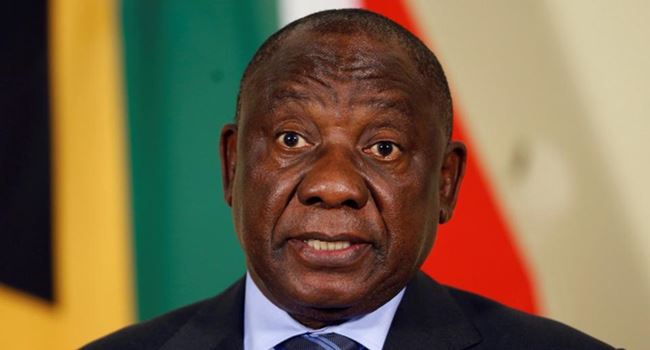Business
BUSINESS REVIEW: How economic sanctions can be a tool to checkmate xenophobia in South Africa

A time like this is when population strength becomes an advantage. But how often does the government play this card to its favour. It is not enough to send delegates over to a country annihilating your citizens. That’s rather cold. This is not calling for a brutal an eye-for-an-eye.
Levying sanctions, even though might be lifted minutes after, is a clear message that a government communicates the feelings of its citizens. And, this is not asking for too much from a country that has a population advantage over erring racists whose security operatives have failed to ensure safety.
Of course, workers and investors in those South African companies in Nigeria are largely Nigerians and might appear as a bullet shot to one’s boot, at the expense of economic growth. That’s right. However, while this doesn’t matter is for the fact that such sanction is purposeful and arises to an effect.
This can only be a better way to symbolise distress while other measures to contain the attack are looked into. With the correct body language, a lot can be achieved by merely placing sanctions that will halt operation of those companies, no matter how temporary. Such will not only big up the momentum to resolve matters but also put such government on their toes to ensure a second time never comes to be.
What we must understand
No one decides to leave his comfort zone to settle outside if basic needs of life are in place. The high rate of migration out of the Nigerian shores only tells how much government (past and present) have fail(ed)(ing). It’s common sense. No one loves to live as an endangered species. Hence, the government should not take matters as the xenophobic attack lightly.
The government, as chief custodian of its citizens wherever in the world they reside, must therefore stand at all times to the rescue, displaying compassion and delivering on its security mandate. It suffices to note that the deficit in infrastructure, health, education, etc. is all that influences trans-border migration.
Read also: BUSINESS REVIEW: Why Ghana, not Nigeria, is largest yam exporter in West Africa
The question
Should a failed government not then be ashamed to further forsake its citizens on a near-to-cheap call for business sanctions that might speed up the checkmating of the mayhem, in form of the killings, going on in South Africa? Reports have it that over 100 South African businesses operates in Nigeria. While this isn’t strange, what is strange is seeing the host country suffering at the mercy of its business partners. With reference to the likes of;
- DSTV
- SHOPRITE
- MTN
- PROTEA HOTELS
- LTA CONSTRUCTIONS
- POWER GIANT
- ESKOM NIGERIA
- PEP RETAIL STORES
The conversion
The consequence on the part of South Africa is in billions, and no country folds hands to see such happen. In a country of 200 million population, a 1% of people in the boycott gives a rough figure of 2 million non-patronising clients or customers. When an average of a thousand naira is marked off per person that’s N2 billion and if this takes effect for 7 days, that’s N14 billion deficit.
Understanding the root cause of xenophobia
In simple terms, home citizens are afraid as foreigners increases and takes up jobs “meant” for citizens. The case is increased competition for jobs and services. Whenever there is economic hardship, locals feel the foreigners are the chief causes. But, how true? Their belief is simple: once foreigners are out, available resources become evenly distributed.
Way forward
The South African government has a lot to do to ensure safety of lives –irrespective of nationality. And, in the event it cannot, it must be explicitly stated, so, the world (foreigners) may decide to continue the risk or simply back out.
Foreign governments with citizens in South Africa must also challenge the South African government. Doing so comes in different ways –dialogues, sanctions in form of boycott, among others. With the right body language, future occurrence of such racist act as xenophobia can be put to sleep, forever.
By Ridwan Adelaja…
Join the conversation
Support Ripples Nigeria, hold up solutions journalism
Balanced, fearless journalism driven by data comes at huge financial costs.
As a media platform, we hold leadership accountable and will not trade the right to press freedom and free speech for a piece of cake.
If you like what we do, and are ready to uphold solutions journalism, kindly donate to the Ripples Nigeria cause.
Your support would help to ensure that citizens and institutions continue to have free access to credible and reliable information for societal development.






















